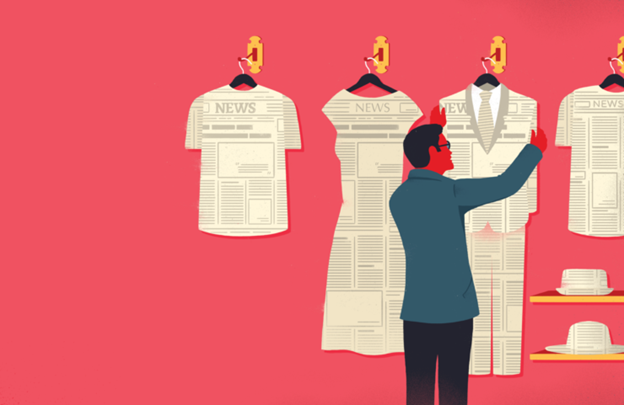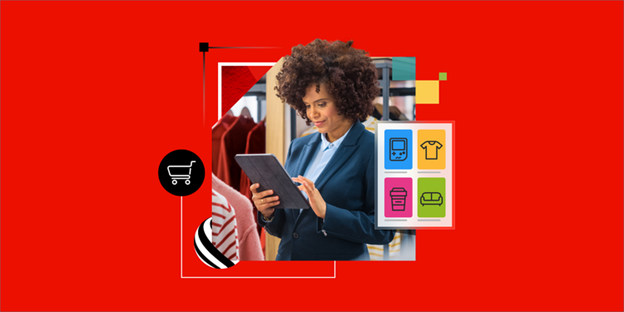The Power of Personalization in Business: Creating Tailored Experiences for Customers

Personalization means making something special for a person. In business, it's about giving customers a unique experience that fits their needs and likes. This helps customers feel important and valued by the company. In this blog, we will discuss the power of personalization in business to create tailored customer experiences.
Why Personalization Matters?
In a world full of choices, the power of personalization in business helps it stand out. It turns regular interactions into special moments for customers, making them more likely to return and tell others about their great experiences.
-
Making Customers Feel Special
When businesses focus on personalizing, they show customers they care about their needs. This builds a strong relationship. For example, if a website shows products that suit your taste immediately, you feel understood and spend more time browsing.
-
Earning Customer Loyalty
Personalization not only attracts customers but also keeps them coming back. By treating customers as individuals and not just numbers, businesses build trust. Trust leads to loyalty, which is key to long-term success.
How Businesses Use Data for Personalization?
Collecting data is the first step in personalization. Knowing what customers buy, what they look at online, and what they like helps businesses tailor their offerings.
-
Gathering Useful Data
Businesses collect data through online forms, tracking what customers do on websites, and by asking direct questions. All this information helps in understanding what each customer wants.
-
Using Data Smartly
With the help of tools like AI, businesses can analyze big data quickly. This helps them figure out what different groups of customers might buy next and show them products or offers that match their interests.
Strategies for Personalizing Customer Experience

Once businesses have data, they need strategies to use it effectively. This includes changing how they communicate, what they offer, and how they interact with customers.
-
Segmenting Customers
This means dividing customers into groups based on what they like, where they live, or how they shop. For each group, businesses can create more personal and relevant messages.
-
Customizing Products
Some businesses let customers design their products. For example, you can choose colors or features that you like. This makes the product feel more personal and increases customer satisfaction.
-
Automating Personalization
Using automation tools helps businesses send the right message at the right time without doing everything manually. For example, if someone adds a product to a cart but doesn't buy it, an automated email might offer them a small discount to encourage purchase.
Challenges and Solutions
While personalization offers many benefits, it also comes with challenges. Privacy is a big concern. Customers want personalized experiences but also want their data to be safe.
-
Ensuring Privacy
To address privacy concerns, businesses must be clear about how they use customer data. They need to follow the rules and give customers control over their information.
-
Balancing Personalization and Privacy
Finding the right balance between using data for personalization and respecting privacy is key. Businesses should use data wisely to provide valuable experiences without crossing privacy lines.
Conclusion
The power of personalization in business helps build relationships with customers, making them feel special and valued. Businesses can create meaningful experiences that keep customers returning by using data wisely and respecting customer privacy.
Subscribe to Our Newsletter
Subscribe to our newsletter to get the latest updates on our articles, news, and available bonuses directly to your inbox.
Register or Log in
Unlock immediate benefits and contribute to a greener planet with Bizindecate! Register today and receive $20 worth of credits for FREE. Use these credits to enhance your advertisements, browse listings, or promote your business effectively on our platform. Planting Trees with Every Step But that's not all—your registration goes beyond business growth.

At Bizindecate, we are dedicated to environmental sustainability. In partnership with OneTreePlanted, we are committed to reforestation efforts. For every second registered and confirmed user, we plant a tree. This not only helps in combating climate change but also supports biodiversity and restores natural habitats.
How helpful was this article to you?
Please rate the article, as your feedback is important to us.
Sponsored listings

Bizindecate demo listing
 Mr. Olivér Jankó
Mr. Olivér Jankó
Bizindecate is an innovative platform designed to bring together entrepreneurs and investors, providing opportunities to promote, expand, and build their business networks. Our platform features a wide array of functionalities, including deep advertising opportunities with detailed analytics, a direct deal-making feature, customized portfolios, personalized promotional emails, an extensive business blog, and a professional messaging system for seamless communication. Among our key services are the advertising of companies and businesses for sale or investment, as well as investor advertisements for financial investment, enabling them to find the most suitable opportunities on our platform. We are committed to building a community based on mutual trust and transparency, where every user has the chance to succeed.


